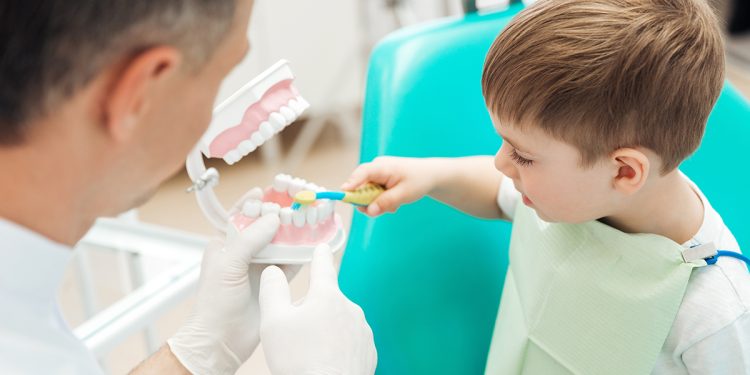
Image Source: FreeImages
Taking care of your teeth and maintaining good oral health is important for everyone, yet many people do not know the best practices for dental care. Good dental hygiene habits are essential for preventing oral health problems, such as cavities, tooth decay, and gum disease. The key to optimal oral health is understanding what habits are necessary and how to practice them correctly. From brushing and flossing to visiting the dentist regularly, there are many different steps you can take to help protect your teeth and gums for a lifetime of good oral health. In this article, we will discuss the best practices for dental care and provide information on how to maintain optimal oral health.
Overview of Oral Health
With good oral hygiene, you can prevent tooth decay, gingivitis, and cavities. Brushing and flossing daily, visiting the dentist regularly, and making smart dietary choices can help you maintain good oral health. Good oral health is also essential for your overall health since oral bacteria can travel in the blood and lead to other infections. Your mouth and teeth are parts of your body that are frequently overlooked, but they need just as much attention as any other part of your body. Having healthy teeth and gums is important for your self-esteem and overall health and well-being. If you have poor oral hygiene, you are at risk of gum disease, cavities, and tooth decay. In addition, bad breath can also be a sign of poor oral hygiene. Poor oral hygiene can also lead to other health problems like heart disease and diabetes. Taking care of your teeth and gums can help prevent these health issues. There are a number of ways to keep your teeth and gums healthy. These include brushing your teeth twice a day, flossing, and making healthy food choices.
Benefits of Good Oral Hygiene
There are many benefits to maintaining good oral hygiene. Some of these benefits include reducing the risk of gum disease, cavities, and other oral health issues such as tooth decay and bad breath. Brushing and flossing daily can help protect your teeth from cavities, tooth decay, and gum disease. It can also help you maintain fresh breath and healthy teeth and gums. Brushing and flossing daily, along with making smart dietary choices, can help you avoid many oral health issues. Having healthy teeth and gums is important for your self-esteem and overall health and well-being. Healthy teeth and gums are important for eating, speaking, and smiling. It can also help you avoid other health issues such as heart disease, diabetes, and stroke. Good oral hygiene can also help you save money in the long run, since oral health issues are often expensive to treat. It can also help you keep your teeth longer, which is especially important as you get older.
Best Practices for Dental Care
There are different practices that are essential for maintaining optimal oral health. These practices include brushing your teeth twice daily, flossing daily, and visiting the dentist regularly. Brushing and flossing daily can help remove bacteria and prevent cavities, tooth decay, and gum disease. If you want to improve your brushing technique, you can use the following tips: – Choose the right toothbrush – A soft-bristled toothbrush that is replaced every three months can remove plaque from your teeth and gums for healthy oral health. – Use the right amount of toothpaste – Using too much toothpaste can actually be harmful for your oral health. – Brush for the recommended time – It is recommended to brush for two minutes to thoroughly clean your teeth and g-ums. – Brush your teeth at the same time every day – Brushing your teeth at the same time each day can help you develop healthy oral hygiene habits. – Brush in different directions – You need to brush in different directions to thoroughly clean your teeth and gums. – Brush your tongue – Your tongue is home to millions of bacteria, so it is important to brush it. – Use floss daily – Flossing daily can help remove plaque and food particles between your teeth.
a. Brushing and Flossing
Brushing twice a day and flossing once a day can help you maintain optimal oral health. There are many different types of toothbrushes and flosses, so it is important to choose the right one for you. Your age, overall health, and oral health habits can help determine which type of toothbrush and floss is best for you. Keep in mind that you should change your toothbrush every three months and floss every one to two weeks. Additionally, you should use an antimicrobial mouthwash daily to help reduce bacteria and fight against gum disease. When it comes to brushing, it is important to use the correct technique. Make sure to spend the recommended two minutes brushing your teeth, brushing in different directions, and reaching teeth in the back of your mouth. It is also important to brush your tongue to remove bacteria.
According to this professional dentist in Fayetteville, it's also worth mentioning that you also have the option to use interdental brushes if flossing is too tedious for your liking.
b. Eating a Balanced Diet
A balanced diet that includes plenty of fruits, vegetables, and grains is essential for good oral health. Healthy foods that you can eat to help maintain oral health include bran, oatmeal, fruits, vegetables, and low-fat dairy products. These foods can help prevent cavities and tooth decay. Additionally, they can also promote healthy bacteria in your mouth, which helps maintain oral health. Avoiding sugary and sticky foods that can lead to cavities is essential. You should also avoid foods and drinks, such as soda, that can harm your teeth. Some foods that can help promote oral health include bananas, carrots, and green leafy vegetables, which are high in vitamin C.
Avoiding Bad Habits
Bad oral hygiene habits can lead to oral health issues, such as cavities, tooth decay, and gum disease. To avoid these issues, it is important to avoid bad oral hygiene habits. Some bad oral hygiene habits include: – Smoking – Smoking can increase the risk of gum disease and oral cancer. – Consuming large amounts of sugar – Consuming large amounts of sugar can lead to tooth decay and cavities. – Refusing to go to the dentist – Visiting the dentist regularly can help you maintain optimal oral health.
Visiting the Dentist Regularly
Visiting the dentist regularly is essential for maintaining optimal oral health. The longer you put off visiting the dentist, the more likely it is that you will develop oral health issues such as tooth decay and gum disease. It is recommended to visit the dentist every six months for a dental exam and cleaning. During the dental exam, the dentist can check your teeth and gums for oral health issues. They can also recommend any oral hygiene products that can help improve your oral health. It is important to visit the dentist regularly for healthy teeth and gums. If you are not visiting the dentist regularly, you can visit the dental hygienist. A dental hygienist can help remove plaque and bacteria that cause oral health issues. Additionally, they can also clean your teeth and apply fluoride treatments. Visiting the dental hygienist can help you maintain optimal oral health and catch any oral health issues early.
Products and Tools to Help Maintain Optimal Oral Health
There are many products and tools that can help you maintain optimal oral health. You should use a fluoride toothpaste and dental floss to brush your teeth and floss your gums. You should also use a mouthwash daily to reduce bacteria in your mouth. In addition, there are many foods and vitamins that can promote oral health. You can eat these foods to help maintain oral health. There are also many oral health products that can help you maintain healthy teeth and gums. A fluoride rinse can help reduce cavities by strengthening your teeth. A tongue cleaner helps remove bacteria from your tongue, which can improve your breath. An electric toothbrush can help you brush your teeth more thoroughly. These are only a few of the many products and tools you can use to maintain optimal oral health.
Oral Hygiene Tips for Children
In order to maintain optimal oral health, it is important to start practicing good oral hygiene habits at a young age. It is recommended to start brushing your teeth at a young age, even before the age of one. It is important to use a baby toothbrush, which can be very small and fit in their mouth. It is recommended to use a small amount of toothpaste that is safe for infants. You should also start flossing between your teeth at a young age. It is recommended too.























